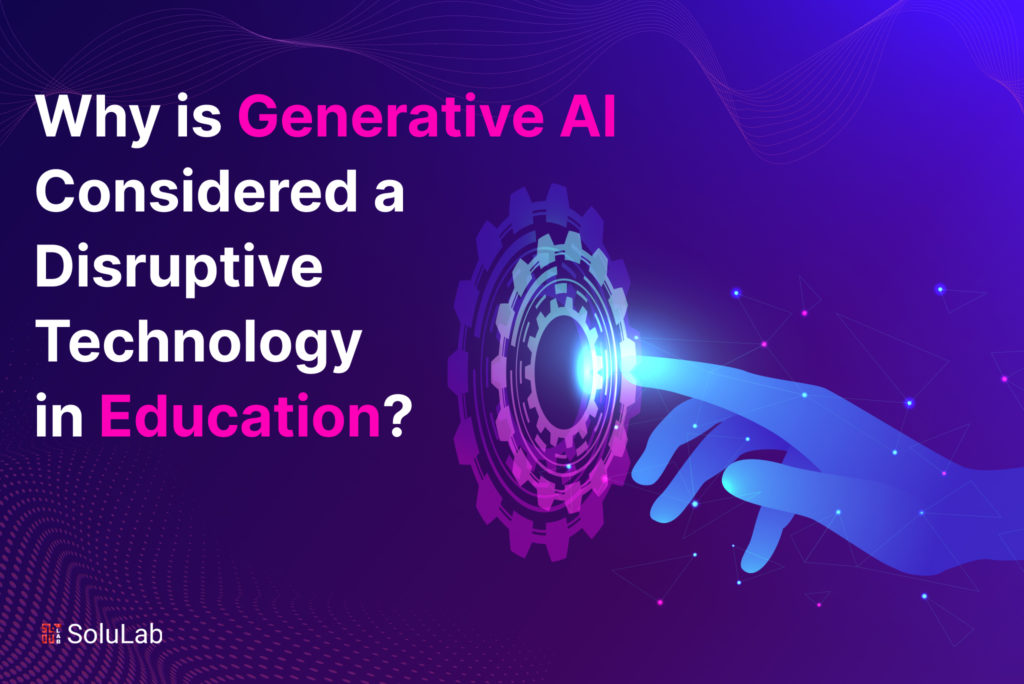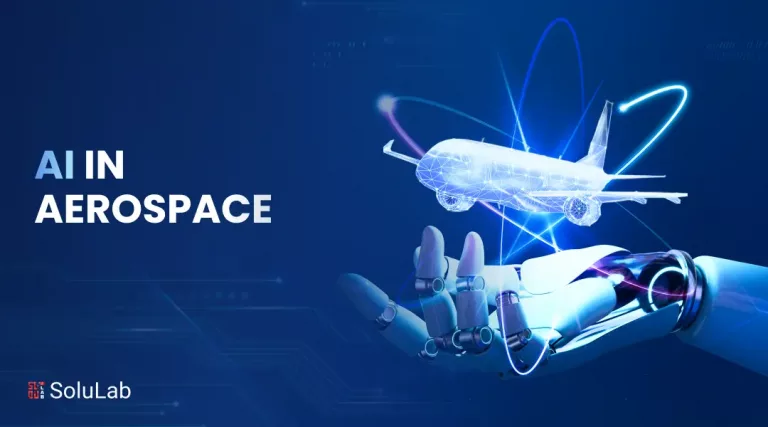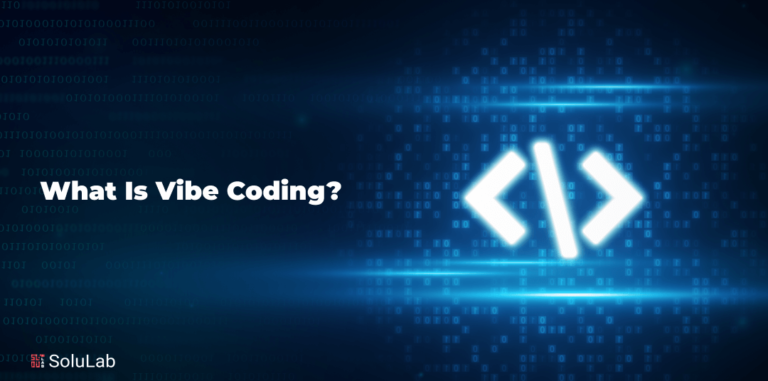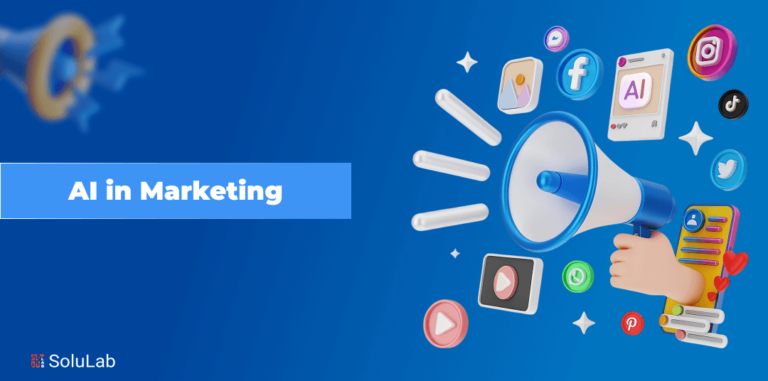
Generative Artificial Intelligence (AI) is revolutionizing education as a disruptive technology with its transformative capabilities. By leveraging advanced algorithms and deep learning models, generative AI has the potential to reshape how we teach and learn. In this blog post, we will explore why it has become a disruptive force and examine generative AI applications in education and its profound implications for the future of learning.
Generative AI harnesses the power of artificial intelligence to generate content, ideas, and responses that resemble human creativity and intelligence. Its impact on education is significant, as it automates and optimizes traditionally time-consuming and resource-intensive processes. This technology enables rapid content creation, personalized learning experiences, enhanced creativity and critical thinking, and improved language acquisition. This is why educational organizations are eager to get such future-proof generative AI tools by hiring generative AI development services.
However, ethical considerations and the transformative potential of generative AI technology must be addressed. Issues such as potential biases in AI-generated content and responsible implementation need careful attention to ensure fairness, equity, and inclusivity. By exploring the disruptive nature of generative AI and understanding its role in education, we can shape a future where AI and human interaction coexist harmoniously, creating enhanced learning opportunities for students worldwide.
Read Also: Generative AI Landscape: A Comprehensive Look at Current and Emerging Trends
Enhancing Content Creation
Automated Generation of Educational Materials
Generative AI has revolutionized content creation in education by enabling the automated generation of educational materials. With the ability to analyze vast amounts of data and understand patterns, AI algorithms can generate high-quality learning resources such as textbooks, worksheets, and interactive multimedia content. This automated generation process significantly reduces the time and effort required by educators to create materials from scratch, allowing them to focus more on instructional design and personalization.
Customized Content Creation For Individual Students
One of the significant advantages of generative AI solutions in education is its capability to create customized content for individual students. By leveraging data on students’ learning preferences, strengths, and weaknesses, AI algorithms can generate personalized educational materials tailored to their needs. This customization enhances student engagement and promotes better understanding and retention of the material. Students can receive content that aligns with their learning style, pace, and skill level, fostering a more effective and personalized learning experience.
Reducing The Burden on Educators and Enabling Personalization
Generative AI alleviates educators’ burdens by automating certain content creation aspects. Instead of spending countless hours designing materials, teachers can leverage AI-generated resources and focus on providing guidance and support to students. This technology also enables educators to personalize instruction by tailoring content based on students’ requirements. By providing adaptive and personalized learning materials, generative AI empowers educators to address the diverse needs of their students more effectively.
Generative AI’s impact on content creation in education is transformative. It streamlines the process of creating educational materials, allowing educators to allocate more time to instruction and individualized support. Moreover, generating customized content enhances student engagement and promotes a deeper understanding of the material. The next section will explore how generative AI solutions facilitate adaptive learning and personalization, further revolutionizing education.
Adaptive Learning and Personalization
Tailoring Educational Experiences To Individual Students’ Needs
Generative AI tools play a crucial role in adaptive learning, which involves tailoring educational experiences to meet the unique needs of each student. AI algorithms can generate personalized learning paths and activities by analyzing student learning preferences, performance, and progress data. These paths adapt to the strengths and weaknesses of individual learners, ensuring that they receive the most relevant and effective content. Through adaptive learning, generative AI helps optimize the learning experience, improving outcomes and student success.
Adaptive Feedback And Assessment
Another significant benefit of generative AI in education is its ability to provide adaptive feedback and assessment. Traditional assessment methods often lack real-time feedback, making it challenging for students to gauge their progress accurately. Generative AI can generate personalized feedback based on individual responses and provide immediate insights into areas of improvement. This real-time feedback helps students identify their strengths and weaknesses, guiding them toward targeted learning and growth. Additionally, adaptive assessment systemically adjusts the difficulty level of questions based on a student’s performance, ensuring that they are appropriately challenged.
Enabling Personalized Learning Paths And Pacing
Generative AI facilitates personalized learning paths and pacing, allowing students to learn quickly and explore interesting topics. AI algorithms can analyze students’ past performance, preferences, and knowledge gaps to generate personalized recommendations and resources. This personalized approach empowers students to take ownership of their learning, fostering intrinsic motivation and a sense of autonomy. Moreover, generative AI tools can generate diverse learning materials, including interactive simulations, virtual reality experiences, and multimedia content, catering to different learning styles and preferences.
Read Our Latest Blog Post: What are the Key Opportunities in Implementing Generative AI in Retail?
Generative AI’s contribution to adaptive learning and personalization transforms education into a more student-centered and tailored experience. Generative AI empowers learners to engage with educational content in a way that suits their unique needs by providing personalized learning paths, adaptive feedback, and individualized pacing. The next section will explore how generative AI fosters creativity and critical thinking, enhancing the educational journey.
Fostering Creativity and Critical Thinking
AI-Generated Prompts And Scenarios For Creative Projects
Generative AI tools open up exciting possibilities for fostering creativity in education. AI algorithms can stimulate students’ imagination and inspire creative projects by generating prompts and scenarios. Whether it’s writing a story, composing music, or designing artwork, AI-generated prompts can serve as starting points for students to explore their creative abilities. This technology introduces new dimensions to the creative process, offering fresh perspectives and expanding the horizons of students’ artistic endeavors.
Simulation And Modeling Tools For Critical Thinking Exercises
Generative AI also facilitates critical thinking exercises through simulation and modeling tools. AI-powered simulations allow students to engage in real-world scenarios, analyze complex problems, and make informed decisions. These interactive experiences provide a safe and controlled environment for students to apply critical thinking skills, experiment with solutions, and evaluate outcomes. By immersing students in realistic simulations, generative AI enhances their ability to think critically, solve problems, and develop a deeper understanding of complex concepts.
Facilitating Higher-Order Thinking Skills Through AI-Generated Challenges
Generative AI can generate challenges that promote higher-order thinking skills, such as analysis, evaluation, and synthesis. These challenges go beyond basic knowledge recall and encourage students to think critically, draw connections, and apply their learning to novel situations. AI algorithms can generate thought-provoking questions, puzzles, and problem-solving tasks that require deep understanding and higher-level cognitive processes. By engaging students in AI-generated challenges, generative AI fosters the development of essential skills for lifelong learning and success in the ever-evolving digital age.
Read Our Blog Post: Top 10 Generative AI Trends To Watch Out In 2023
Generative AI empowers educators to nurture creativity and critical thinking among students. This technology expands the possibilities for imaginative expression, problem-solving, and higher-order cognitive skills by providing AI-generated prompts, simulations, and challenges. Through the integration of generative AI in the educational journey, students are encouraged to think creatively, critically analyze information, and develop innovative solutions. The next section will explore how generative AI revolutionizes language learning and translation, breaks down barriers, and promotes global collaboration.
Language Learning and Translation
AI-Powered Language Tutoring And Practice
Generative AI has transformed the landscape of language learning by providing AI-powered tutoring and practice tools. Language learning traditionally relied on textbooks and classroom instruction, limiting individualized practice and feedback opportunities. With generative AI, language learners can access interactive platforms offering personalized tutoring and practice exercises. AI algorithms can analyze learners’ language proficiency, identify areas for improvement, and generate targeted exercises to enhance their skills. These AI-powered language tutors provide real-time feedback, pronunciation assistance, and adaptive learning paths, enabling learners to progress at their own pace and achieve fluency more efficiently.
Real-Time Translation And Communication Tools
Generative AI has also revolutionized translation and communication in language learning. Language barriers that once hindered global collaboration and understanding are now being overcome through AI-powered real-time translation tools. These tools can instantly translate spoken and written language, facilitating communication between individuals who speak different languages. Language learners can engage in conversations and interact with authentic content in foreign languages with AI-powered translation tools. This real-time translation capability promotes cross-cultural understanding, fosters global collaboration, and broadens learners’ perspectives.
Breaking Down Language Barriers And Promoting Global Collaboration
Generative AI in language learning breaks down language barriers and promotes global collaboration. Through AI-powered platforms and tools, students worldwide can connect and collaborate on projects, sharing their cultural perspectives and learning from one another. Language learners can engage in virtual language exchanges, where AI algorithms facilitate conversations and provide language assistance. This global collaboration enhances cultural competence, empathy, and communication skills, preparing students to thrive in an interconnected and diverse world.
Read Our Recent Press Release: SoluLab Launches Generative AI Consulting & Development Services to Help Clients Leverage the Strength of AI Technology
Generative AI has transformed language learning and translation, offering personalized tutoring, real-time translation, and opportunities for global collaboration. With AI-powered language tools, learners can develop their language skills, communicate effectively across borders, and engage in meaningful cross-cultural interactions. The next section will explore the ethical considerations and challenges of implementing generative AI in education.
Ethical Considerations and Challenges
Potential Biases And Ethical Implications of Generative AI
While generative AI offers immense potential in education, it also poses ethical considerations and challenges that must be addressed. One significant concern is the potential biases embedded in AI algorithms. Since generative AI relies on large datasets for training if these datasets contain biases or reflect societal inequalities, the generated content may perpetuate or amplify those biases. It is crucial to ensure that AI algorithms are developed and trained using diverse and representative datasets and to implement rigorous evaluation mechanisms to detect and mitigate biases.
Ensuring Responsible And Inclusive AI Use In Education
Another challenge is ensuring generative AI’s responsible and inclusive use in education. As AI systems become more sophisticated, there is a risk of overreliance on AI-generated content and neglecting the importance of human interaction and guidance. It is essential to balance AI assistance and educators’ role as mentors and facilitators of learning. Additionally, efforts should be made to ensure that AI-powered educational resources are accessible to all learners, including those with disabilities or limited access to technology.
Balancing AI Assistance With Human Interaction And Guidance
Generative AI should be viewed as a tool to augment, rather than replace, human educators. While AI algorithms can generate content and provide personalized recommendations, the value of human interaction and guidance in the learning process should not be underestimated. Educators play a vital role in fostering critical thinking, social-emotional development, and ethical reasoning. It is crucial to balance AI assistance and human involvement to create a holistic and well-rounded educational experience for students.
Educators, researchers, and policymakers must collaborate closely to address these ethical considerations and challenges. Clear guidelines and standards should be established to ensure the responsible and inclusive use of generative AI in education. Ongoing research and development efforts should focus on refining AI algorithms, enhancing transparency, and developing robust evaluation frameworks. By doing so, we can harness the power of generative AI while upholding ethical principles and creating a more equitable and inclusive educational environment.
In the next section, we will explore the future implications and possibilities of generative AI in education, paving the way for continued advancements and the potential for breakthroughs in this transformative field.
Future Implications and Possibilities
Continued Advancements And Potential Breakthroughs In Generative AI
The field of generative AI is continuously evolving, with ongoing advancements and breakthroughs on the horizon. AI algorithms are expected to become even more sophisticated as technology progresses, capable of generating highly realistic and contextually nuanced educational content. This could include AI-generated virtual tutors with advanced natural language processing capabilities, providing personalized and interactive learning experiences. Furthermore, advancements in deep learning and neural networks may unlock new possibilities for generative AI, enabling even more creative and intelligent content generation.
Expanded Access To Quality Education Through AI-Driven Platforms
Generative AI can potentially address the issue of access to quality education, particularly in underserved communities or remote areas. AI-driven educational platforms can provide personalized learning experiences, adaptive feedback, and access to high-quality educational resources. By leveraging generative AI, these platforms can bridge the academic gap, offering tailored instruction and support to learners who may not have access to traditional educational institutions. This democratization of education through AI-driven platforms has the potential to empower individuals worldwide and promote lifelong learning.
Read Our Blog Post: Leveraging Generative AI for Data Analysis and Modeling
Shaping The Future Of Education Through Collaborative Human-AI Systems
The future of education lies in collaborative human-AI systems, where humans and AI work together synergistically. Generative AI can be a powerful tool to assist educators in teaching and learning, such as content creation, personalization, and assessment. By leveraging the strengths of both humans and AI, educational experiences can be enhanced, with AI providing intelligent support and augmenting the capabilities of human educators. Collaborative human-AI systems can revolutionize education, creating a dynamic and adaptive learning environment that maximizes the potential of each learner.
As generative AI continues to advance, it holds the potential to shape the future of education. The educational landscape will transform significantly through ongoing breakthroughs, expanded access to quality education, and collaborative human-AI systems. However, it is essential to approach these possibilities with a critical lens, addressing ethical considerations and ensuring responsible implementation. In the next section, we will conclude our exploration of the transformative power of generative AI in education and emphasize the need for reliable and ethical practices.
Conclusion
No doubt, generative AI use cases in education are vast, which is why it is a disruptive technology transforming education in profound ways. From enhancing content creation and enabling personalization to fostering creativity and critical thinking and breaking down language barriers, generative AI can revolutionize the learning experience. However, as we embrace this transformative power, we must approach generative AI in education with responsibility and ethical considerations.
Addressing potential biases, ensuring inclusive access, and balancing AI assistance and human guidance is vital for responsible implementation. Educators, researchers, and policymakers must collaborate to establish guidelines, refine AI algorithms, and create a holistic educational environment combining AI’s strengths and human interaction.
The future implications of generative AI in education are promising. Continued advancements and breakthroughs will further enhance its capabilities, expanding access to quality education and shaping the future of learning. By embracing generative AI with responsible practices, we can unlock its transformative power and empower learners to thrive in an ever-changing world.
SoluLab, a renowned generative AI development company, provides a wide range of comprehensive generative AI development services tailored to various industries and business sectors. The team of highly skilled generative AI developers at SoluLab utilizes cutting-edge Generative AI technology, software, and tools to craft personalized solutions that effectively cater to your specific business requirements. By enhancing operational efficiency, streamlining processes, and elevating user experiences, SoluLab’s Generative AI solutions aim to unlock fresh opportunities for businesses. For a free consultation, reach out to SoluLab today.
FAQs
1. How can generative AI help the education sector?
Generative AI can help education in various ways. It can automate the process of content creation, generating educational materials such as textbooks, worksheets, and multimedia content. This reduces the burden on educators, allowing them to focus on instructional design and personalization. Generative AI also enables personalized learning experiences by analyzing student data and generating tailored content and recommendations based on individual needs. It can facilitate adaptive learning, providing customized learning paths, adaptive feedback, and assessment. Additionally, generative AI can break down language barriers, offer real-time translation tools, and promote global collaboration in language learning. Overall, generative AI has the potential to enhance content creation, personalize learning, foster creativity and critical thinking, and support language learning and translation.
2. Is generative AI the future of learning?
Generative AI holds great potential for the future of learning. It can revolutionize education by offering personalized and adaptive learning experiences tailored to individual students’ needs. Generative AI algorithms can analyze vast amounts of data on students’ learning preferences, performance, and progress to generate personalized content, recommendations, and feedback. This level of personalization can enhance student engagement, motivation, and understanding. Furthermore, generative AI can assist educators by automating content creation, providing intelligent tutoring and assessment, and fostering creativity and critical thinking. By leveraging generative AI, the future of learning can be characterized by personalized, adaptive, and enriched educational experiences.
3. How does generative AI enhance content creation in education?
Generative AI automates the generation of educational materials such as textbooks, worksheets, and multimedia content. It reduces the burden on educators by saving time and effort in content creation, allowing them to focus on instructional design and personalization. Additionally, generative AI enables the customization of content for individual students, catering to their specific needs and learning styles.
4. How is AI making an impact in the field of education?
AI revolutionizes education by enabling personalized learning experiences, providing intelligent tutoring systems, and automating content creation processes. It analyzes student data to tailor instruction, offers real-time guidance, and generates educational materials. AI’s impact on education enhances learning outcomes, fosters engagement, and enables adaptive and efficient educational experiences.
5. What are SoluLab’s generative AI development solutions for education?
SoluLab, renowned for its innovative technological solutions, offers a range of generative AI development solutions tailored to the field of education. Their comprehensive offerings encompass state-of-the-art AI-driven tools crafted for content creation, yielding interactive learning materials. Additionally, SoluLab provides adaptive assessment platforms adept at furnishing personalized feedback to students, fostering a more tailored learning journey. Among their array of solutions are language learning applications boasting real-time translation capabilities, further enriching the educational experience. Notably, SoluLab extends its expertise to encompass bespoke AI integration services, enabling educational institutions to seamlessly incorporate generative AI into their existing frameworks. Through these endeavors, SoluLab strives to reshape education by leveraging the potential of generative AI to innovate and elevate the learning process for both educators and students.
6. How can businesses leverage generative AI in the education sector for commercial purposes?
Businesses can harness the power of generative AI in education by creating and offering innovative products and services. They can develop AI-driven educational apps, platforms, or tools that deliver personalized learning experiences to students. By integrating generative AI, companies can provide content-generation services to educational institutions, reducing their content creation costs while maintaining quality. Additionally, businesses can explore partnerships with schools and universities to implement AI-powered solutions that enhance teaching and learning processes, thereby creating revenue streams through licensing or subscription models.






